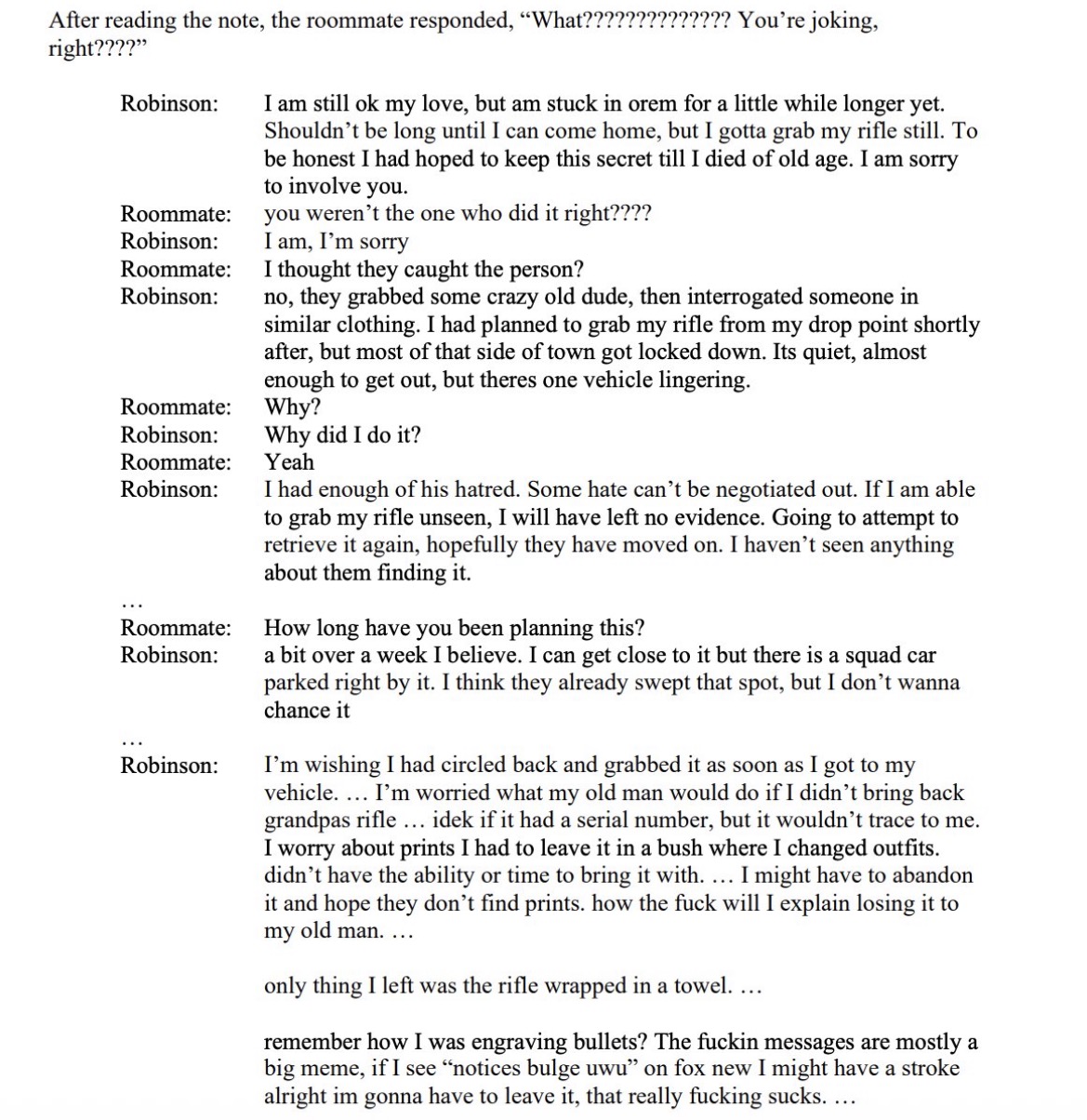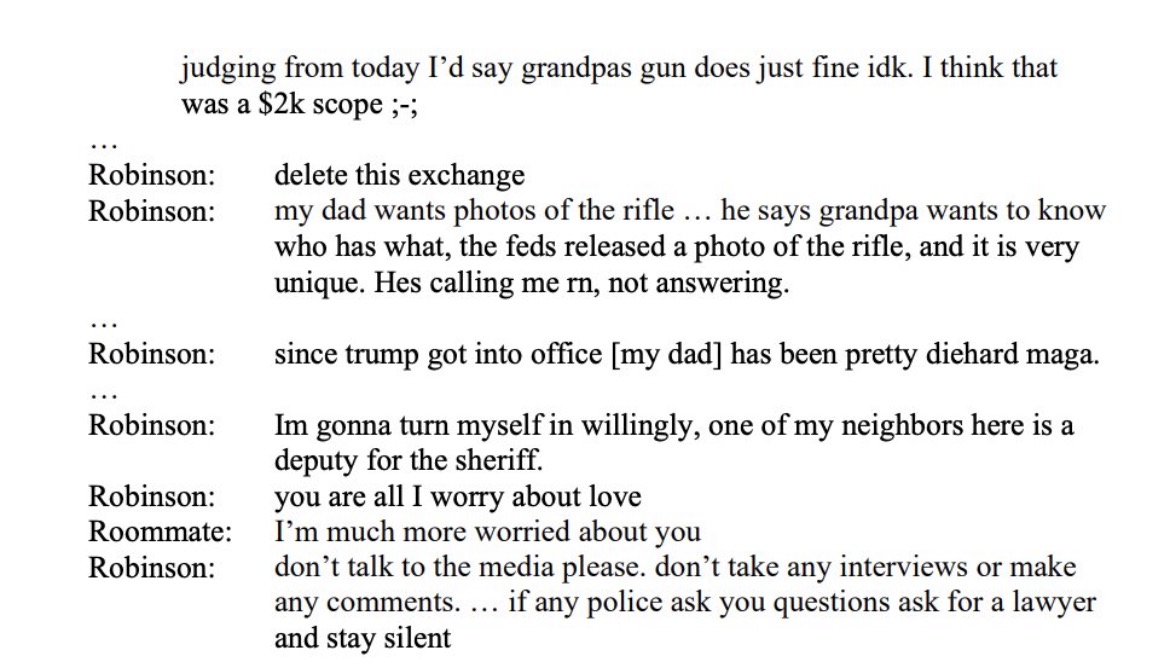Politics
GSA’s $1 awards for AI tools come under protest

The $1 contracts for access to leading-edge artificial intelligence companies may be too good to be true.
The General Services Administration’s recent awards to OpenAI and Anthropic are facing protests before the Government Accountability Office.
Ask Sage, an AI model agnostic generative AI platform provider, submitted the protests to GAO in mid-August. GAO has until Nov. 24 to decide the cases. Ask Sage is considering filing a protest with GAO over the award to Google as well.
The basic arguments that Ask Sage, which has customers across the Defense Department and civilian agencies, is making to GAO are across several areas:
- Alleged violation of commercial item pricing requirements under FAR Part 12, which requires that contract financing payment terms for commercial purchases be appropriate or customary in the commercial marketplace
- Possible circumvention of competition requirements, alleged violation of the Competition in Contracting Act. Ask Sage says by offering low first-year pricing without transparency regarding subsequent year costs, the arrangement effectively precludes meaningful competition for future AI services.
- Contract exclusivity possibly violates FAR PART 11, which requires agencies to specify needs in a manner designed to promote full and open competition. By limiting agencies to these AI provider’s models, the contracts fail to meet the government’s actual requirements for interoperable, flexible AI solutions that can adapt to evolving technological capabilities and security requirements.
- Possible violations of cybersecurity laws, regulations and policies under FAR PART 39, which requires agencies to purchase IT that meet certain security requirements. Ask Sage also said the awards violate FAR PART 11 and the Federal Information Security Management Act (FISMA). Additionally, at least one vendor has not been authorized under the cloud security program known as FedRAMP, therefore failing to meet Office of Management and Budget policies.
Nic Chaillan, the founder and CEO of Ask Sage and a former Air Force and Space Force chief software officer, said these contracts are not going to impact his company, but he believes the awards are not only inappropriate but violate several laws and regulations.
Nic Chaillan is the founder and CEO of Ask Sage and a former Air Force and Space Force chief software officer.
“When you see products that are usually worth $20 to $30 a user per month go down to a single dollar, or even less than $1 for an entire agency of hundreds of thousands of people, obviously, you start questioning the motives,” Chaillan said in an interview with Federal News Network. “Number one, of course, is the vendor lock-in aspect of it. If you look at the Google or OpenAI or the Anthropic award, if you look at what products are included in this offering, you realize pretty quickly that it is 100% designed to get people locked in to their products. For example, the models and the application programming interfaces (APIs), so that people can build products and automation outside of the company’s user interface product are not included in the in the offering. So if you’re trying to build any kind of automation, or you’re trying to build capabilities that will be agnostic and can work both with OpenAI or Anthropic and Google to be agnostic… you’re not able to do it because they are not allowing you access to the API.”
As part of GSA’s OneGov strategy, the agency awarded schedule contracts to OpenAI, Anthropic and Google for access to their AI tools like ChatGPT or Gemini or Claude.
GSA negotiated the price point for governmentwide access to OpenAI and Anthropic for $1 and $0.47 for Google.
GSA says the idea of these schedule contracts is to make these AI platforms easily accessible and cost-effective for agencies to begin using.
Deals may lock out small, emerging companies
After GSA announced the awards, it came to light that the OpenAI, Google and Anthropic contracts are through IT reseller Carahsoft. GSA has said it wants to contract directly with companies and not go through resellers.
But even beyond the use of resellers, Chaillan said these contracts are making it harder for small and emerging companies in the AI sector to compete. He said a price point this low isn’t about the first contract, it’s about the successive years and options because after agencies have put their data into these models, trained the models and trained their workforces, the potential cost to leave is high and the ability for others to compete will be greatly reduced.
“If you look at the last 20 years, there is never, ever a single award you can find that took a product that is worth about a billion dollars a year, down to $1. So now you’ve got to wonder why this is happening and why these companies are doing these deals,” he said. “The fact that there is zero visibility in years 2-3-4-5 of a contract, and that GSA is refusing to share the contract terms, the data rights and any of the contract information to anyone is concerning. In fact, if you try to get it, they’re going to tell you to do a Freedom of Information Act request, which is unheard of. Every contract is usually public, but yet, GSA refused to give us any access to the terms of the contract. That tells you there’s a lot going on here.”
Chaillan added he tried to work with GSA, talk to them about the contract terms and conditions and get involved in the discussion only to be locked out.
GSA didn’t respond to multiple emails seeking comment on the protests. Typically, agencies do not comment on ongoing litigation.
Chaillan said the government is trying to get his protests dismissed on the basis that his company doesn’t have standing to file a protest. Additionally, he said government lawyers told GAO that the awards aren’t new, but just additions to existing contracts with Carahsoft.
“They’re really trying to take advantage of all the loopholes. And, of course, they refused to engage with us. In fact, I had to threaten the GSA team that I’d file an inspector general complaint when they refused, initially, to give us the contracting officer’s name and the contract identification number of the award because, initially, they actually refused to share that with us, and we cannot file a protest without that information,” he said. “That, again, shows you that they’re not being transparent, and if you have nothing to hide, then that’s never a normal thing.”
Interestingly enough, GSA in their press releases doesn’t say contract, but calls the deals with the three AI companies an “agreement.”
Chaillan said he also believes the companies are taking advantage of the situation.
He said they are designing these AI offerings to ensure that agencies get locked in “on the false pretense that they’re trying to make it accessible at a very inexpensive price point. When really, they disabled all the features and all the usual pieces of their offering that usually enables teams to not get locked into their products. So it is 100% design for vendor lock-in.”
Dan Schoeni, the NCR Professor of Law and Technology at the University of Dayton School of Law, an adjunct professor at The George Washington University Law School and a former Air Force judge advocate, said while he doesn’t know all the specific details of the protest, on the surface it seems like there are several concerns.
Schoeni said he has three main concerns about the awards:
- Possible Anti-Deficiency Act violations;
- Possible Competition in Contracting Act violations;
- Likelihood of vendor lock-in seems to violate fair competition requirements.
Schoeni said without true competition, the entire procurement system is at risk.
“For the last 200 years, the whole procurement system is premised on there being competition. If there isn’t competition, our whole system is a sham. It doesn’t work. There has to be competition. So if you’re effectively eliminating the competition by just awarding to your favorite vendor because they’re willing to cut you a sweetheart deal for $1, then you’ve circumvented the whole competitive process, and the system just can’t work that way,” Schoeni said an interview with Federal News Network. “OpenAI, Anthropic and Google aren’t doing this for free. They’re not really doing it for $1 either. What they really want to do is get their foot in the door and then they charge the government more down the road.”
Delivering a complete AI platform
He added in his experience the government has typically rejected what he called an unbalanced bid, which is when a vendor submits a proposal that is out of whack with commercial reality. He said the $1 or $0.47 contract is the essence of an unbalanced bid.
The companies defended their agreements with GSA.
“This is less about the discount and more about the mission. To meet today’s challenges, agencies need a complete AI platform, not just a collection of tools. That’s what this offer provides—a unified platform with everything from enterprise search to the ability for employees to create custom AI agents,” a spokesperson for Google Public Sector said in an email to Federal News Network. “Our priority was to get this powerful, mission-enabling capability into the hands of our government partners as quickly and effectively as possible. While previous OneGov offers are for models-only, the Gemini for Government offering is a complete AI platform – including Google-quality enterprise search; video and image generation capabilities; the popular NotebookLM AI tool; out-of-the-box AI agents on Deep Research, Idea Generation, and more; and the ability for government employees to create their own AI agents.”
The Google spokesperson confirmed that its APIs are not included in the contractual offering and the tools are available to agencies to use as needed at the company’s typical costs.
The spokesperson, however, pointed out that the company’s platform can use Agent2Agent protocols to include non-Google models and agents in the user interface to help avoid the vendor lock-in concerns.
At the same time, Google confirmed a typical cost for its Google Gemini platform is $35 per user.
An OpenAI spokesperson provided a link back to the company’s blog post when GSA announced the agreement for details about its AI platform, ChatGPT. But the spokesperson added that OpenAI is pursuing FedRAMP certification.
An Anthropic spokesperson said agencies needing API access can work with them through existing platforms like AWS Bedrock and Google Cloud, but they didn’t confirm whether access would cost more for agencies.
“As AI adoption leads to transformation across industries, we want to ensure that federal workers can fully harness these capabilities to better serve the American people. By removing cost barriers, we’re enabling the government to access the same advanced AI that’s already proving its value in the private sector,” said the Anthropic spokesperson.
The post GSA’s $1 awards for AI tools come under protest first appeared on Federal News Network.
Politics
Black Lives Matter Activist in Boston Pleads Guilty to Federal Fraud Charges – Scammed Donors to Fund Her Lifestyle

Screencap of YouTube video.
A Black Lives Matter activist in Boston named Monica Cannon-Grant pleaded guilty to federal charges this week, admitting that she scammed donors and used their money to fund her own lavish lifestyle.
Cannon-Grant was previously held up as an admired figure. The city of Boston named her the Bostonian of the year at one point for her ‘social justice activism’ and she was even recognized by the Boston Celtics basketball team for her efforts.
She is now facing a minimum of two years in prison.
The New York Post reports:
BLM-linked activist admits conning donors to fund her lavish lifestyle
A once-celebrated Boston social activist has pleaded guilty to defrauding donors — including Black Lives Matter — out of thousands of dollars that she used as a personal piggy bank.
Monica Cannon-Grant, 44, pleaded guilty Monday to 18 counts of fraud-related crimes that she committed with her late husband while operating their Violence in Boston (VIB) activists group, according to the US Attorney’s Office in Massachusetts.
The activist scammed money — including $3,000 from a BLM group — while claiming it was to help feed children and run protests like one in 2020 over the murder of George Floyd and police violence.
Cannon-Grant also conned her way into getting $100,000 in federal pandemic-related unemployment benefits — which she used to pay off her personal auto loan and car insurance policy.
But she has now confessed to transferring funds to personal bank accounts to pay for rent, shopping sprees, delivery meals, visits to a nail salon — and even a summer vacation to Maryland.
Just amazing.
Monica Cannon-Grant stole from donors, scammed the government, and lived it up while preaching about oppression. BLM grift is the only nonprofit where fraud is part of the mission statement. https://t.co/ir3q9lqYrh
— Matthew Newgarden (@a_newgarden) September 23, 2025
BREAKING: BLM activist Monica Cannon-Grant pleads guilty to 27 fraud charges, misusing over $1M from Violence in Boston for personal gain. Echoes Sir Maejor Page’s $450K scam conviction. A wake-up call for nonprofit accountability. pic.twitter.com/N9vvD369gB
— (@pr0ud_americans) September 14, 2025
Here’s a local video report:
She should pay back every penny.
The post Black Lives Matter Activist in Boston Pleads Guilty to Federal Fraud Charges – Scammed Donors to Fund Her Lifestyle appeared first on The Gateway Pundit.
Politics
Keith Olbermann Backpedals Furiously With Apology for Threatening CNN’s Scott Jennings – Jennings Responds (VIDEO)

As the Gateway Pundit reported yesterday, former MSNBC host and generally unhinged leftist Keith Olbermann, appeared to threaten CNN’s conservative pundit Scott Jennings on Twitter saying, ‘You’re next motherf**ker.’
Well, Olbermann may have gotten a phone call or a visit from the FBI because today he walked back those comments with a full-throated apology.
RedState has an update:
To quickly recap, Scott Jennings, a Salem Media Network radio host and conservative CNN political commentator, reacted to breaking news on Monday that Kimmel had been reinstated by tweeting, “So basically his employer suspended him for being an insensitive pr**k, and we don’t live in an authoritarian regime? Got it.”
This enraged Olbermann, who proceeded to tweet what many, including Jennings, perceived to be a threat. “You’re next, motherf**ker. But keep mugging to the camera.” Jennings tagged Patel and included a screengrab of the tweets in response.
Though the FBI hasn’t commented as to whether an investigation was launched, Olbermann ostensibly appears to have thought twice about what he tweeted and deleted, apologizing profusely in tweets posted on Tuesday and claiming what he wrote was “misinterpreted”:
See Olbermann’s tweet below:
I apologize without reservation to @ScottJenningsKY
Yesterday I wrote and immediately deleted 2 responses to him about Kimmel because they could be misinterpreted as a threat to anything besides his career. I immediately replaced them with ones specifying what I actually meant. pic.twitter.com/SPWLb73nEk
— Keith Olbermann (@KeithOlbermann) September 23, 2025
I oppose and condemn political violence, and the threat of it. All times are the wrong time to leave even an inadvertent impression of it – but this time is especially wrong
I should've acknowledged the deletion and apologized yesterday. I'm sorry I delayed.
— Keith Olbermann (@KeithOlbermann) September 23, 2025
Scott Jennings, always a class act, offered this hilarious response:
SCOTT JENNINGS: “Marking myself SAFE from that NUT, Keith Olbermann!” pic.twitter.com/EYZX6vm5Oh
— Dustin Grage (@GrageDustin) September 23, 2025
Keith Olbermann really needs help. The guy is just so out of control.
The post Keith Olbermann Backpedals Furiously With Apology for Threatening CNN’s Scott Jennings – Jennings Responds (VIDEO) appeared first on The Gateway Pundit.
Politics
Where is Lance Twiggs? Kirk Assassin’s Transgender Lover Has Vanished

 Charlie Kirk assassin Tyler Robinson and roommate Lance Twiggs
Charlie Kirk assassin Tyler Robinson and roommate Lance Twiggs
Charlie Kirk assassin Tyler Robinson lived with his transgender partner – a male-to-female trans named Lance “Luna” Twiggs.
The FBI used Robinson’s texts with his transgender partner to solidify that Robinson was the assassin. Lance Twiggs has not been charged with any crime; however, federal authorities are still investigating.
Last week, Utah authorities released the text exchange between Tyler Robinson and his transgender lover, Lance Twiggs, sent shortly after Kirk’s assassination.
Utah County District Attorney Jeff Gray announced seven charges against Charlie Kirk assassin Tyler Robinson. They will also be seeking the death penalty.
Robinson was charged with:
– Count 1: Aggravated murder (capital offense)
– Count 2: Felony reckless discharge of a firearm causing bodily injury
– Count 3: Felony obstruction of justice for hiding the firearm
– Count 4: Felony obstruction of justice for discarding the clothing he wore during the shooting
– Count 5: Witness tampering for asking roommate to delete incriminating messages
– Count 6: Witness temperating for demanding trans roommate stay silent, and not speak to police
– Count 7: Commission of a violent offense in the presence of a child
Jeff Gray released the chilling texts between Tyler Robinson and his “love” Lance Twiggs.
Read the text exchange here:
 Tyler Robinson texts with transgender lover Lance Twiggs / 1
Tyler Robinson texts with transgender lover Lance Twiggs / 1
 Kirk assassin Tyler Robinson texts with transgender lover Lance Twiggs / 2
Kirk assassin Tyler Robinson texts with transgender lover Lance Twiggs / 2
Lance Twiggs was reportedly cooperating with the FBI, however, according to the Daily Mail he has seemingly vanished.
“If [Lance Twiggs] ever comes back, it will be in a body bag,” a neighbor said to the Daily Mail. “That’s not a threat – I’m just saying that there are so many people who want a piece of him he’d be mad to show his face in public again. This was a generational event.”
The Daily Mail reported:
The Trans boyfriend of Charlie Kirk’s alleged assassin has fled their former lovenest – and locals tell the Daily Mail they never want to see him again.
Lance Twiggs, 22, was led away for questioning when police swooped on the smart three-bed condo he shared with accused gunman Tyler Robinson, 22.
Shaken neighbors say the part time plumber has not been back to the $320,000 property in St. George, Utah – one declaring: ‘Good riddance. I never want to see either of them again.’
His beaten-up Infinity compact is still parked in his space with his work gear tossed across the back seat and a sandwich wrapper and a drink on the front passenger seat.
Upstairs lights have been left on for more than a week and notes and Amazon packages are piling up outside the home owned by Twiggs’s devout Mormon family.
The post Where is Lance Twiggs? Kirk Assassin’s Transgender Lover Has Vanished appeared first on The Gateway Pundit.
-

 Entertainment6 months ago
Entertainment6 months agoNew Kid and Family Movies in 2025: Calendar of Release Dates (Updating)
-

 Entertainment3 months ago
Entertainment3 months agoBrooklyn Mirage Has Been Quietly Co-Managed by Hedge Fund Manager Axar Capital Amid Reopening Drama
-
Tech6 months ago
The best sexting apps in 2025
-

 Entertainment5 months ago
Entertainment5 months agoKid and Family TV Shows in 2025: New Series & Season Premiere Dates (Updating)
-

 Tech7 months ago
Tech7 months agoEvery potential TikTok buyer we know about
-
Tech7 months ago
iOS 18.4 developer beta released — heres what you can expect
-

 Tech7 months ago
Tech7 months agoAre You an RSSMasher?
-

 Politics7 months ago
Politics7 months agoDOGE-ing toward the best Department of Defense ever



